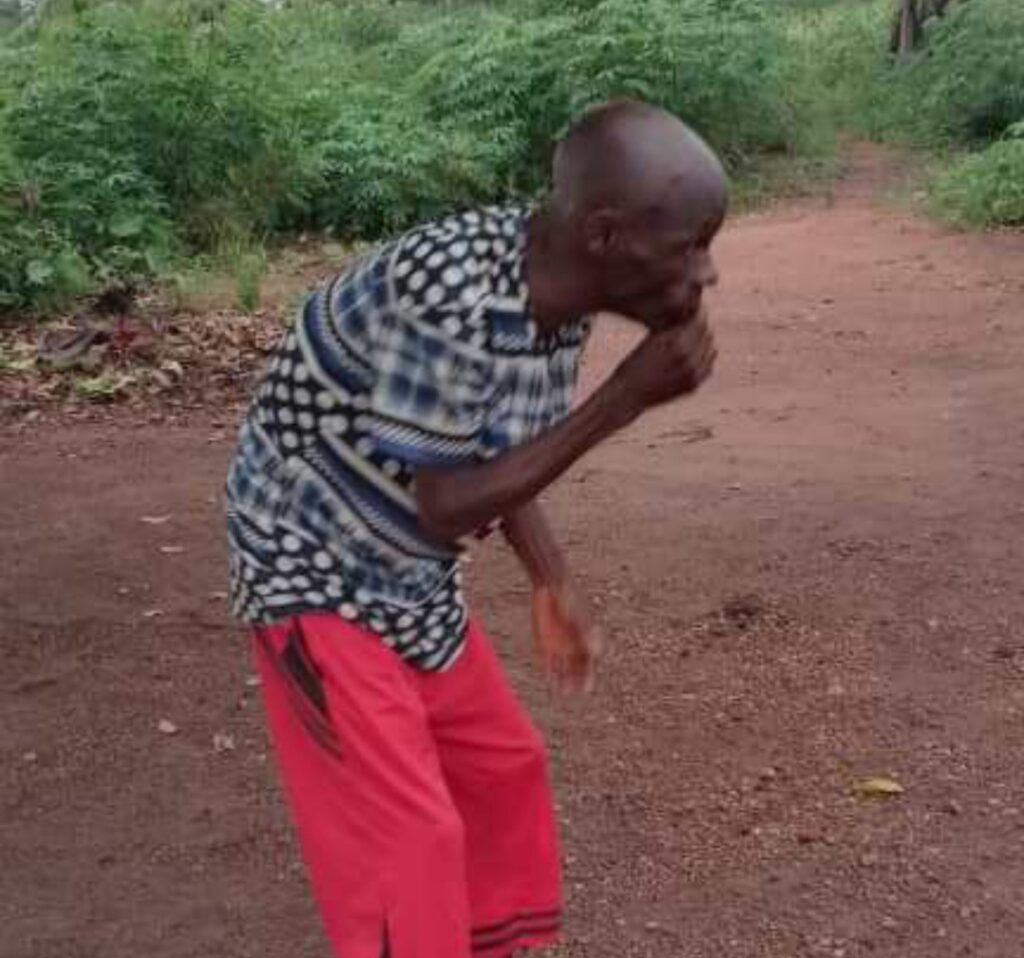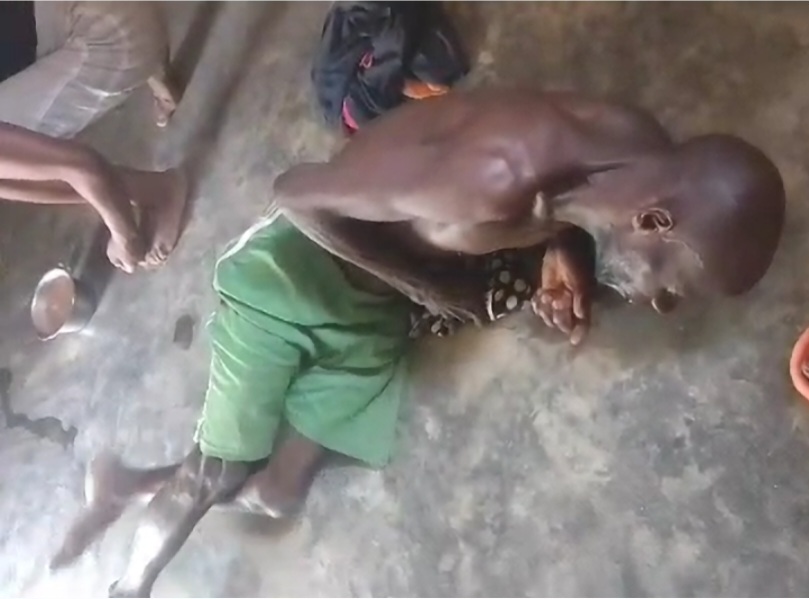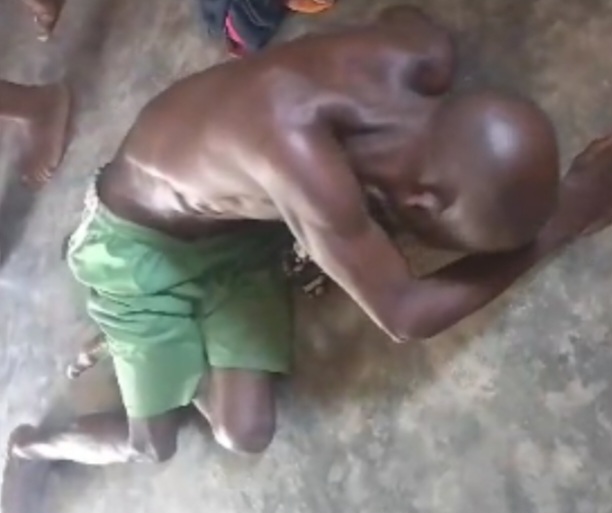Last week, we reported how Cameroonian refugees in Nigeria were battered and banished from Adagom 1 settlement in Cross River State. In this follow-up report, INNOCENT DURU examines how the United Nations High Commission for Refugees’ abrupt end of financial support to the the displaced persons has spiked untold hardship among the people, consequent upon which some of them are engaging in action and activities that are claiming their lives.
Life is fast falling apart for many Cameroonian refugees in the country after United Nations High Commission for Refugees (UNHCR) abruptly ended the cash support it was giving to the people who fled their war-torn country to settle in Nigeria.
Following the sudden end of the cash support, hunger and its attendant challenges are said to have reduced a good number of the refugees to walking corpses.
Henry Esulo, a 46 year-old Cameroonian, is one of the refugees that have become seriously sick. His sickness was said to have started in October 2023. ...CONTINUE READING


His son, Goodnews, said his sickness started as stomach pain.
His words: “He was complaining of abdominal pains. At one point, it was so bad that he could not walk straight again.
“We started suspecting that it could be appendicitis. We took him to Adagom Health Centre where they conducted a medical check on him but didn’t come up with any tangible result.”
After the hospital could not diagnose what was wrong with Esulo, the condition started getting worse.
“We were later referred to another hospital where it was found to be hid appendix. He was operated upon.
“After the operation, it appeared as if he was okay. But after some, time, he started feeling pains from the spot.
“Another operation was carried out and the situation became worse than when the challenge started.”
Goodnews said that each time the discomfort begins, his father would be writhing in pains, crawling and rolling on the ground.
“He can’t stretch his neck. He complains of stiffness in the neck,” he said.
A video of the father shared with our correspondent would melt a heart a heart cast in iron. The hitherto agile and vivacious man is seen crawling and rolling on bare floor
as the discomfort ignites agonising pains round his body.
Unlike the war in his country, Esulo cannot abandon his body and flee from the fire that is raging within him.
He wishes it is a dream, but it is not. The UNHCR he looks up for survival is said to have left him to his own fate.
“The UNHCR really assisted us but they didn’t fully meet our hearts’ desire. We were expecting that they would refer him to Calabar.
“As a family, I can’t estimate how much my family also spent paying hospital bills.
“The UNHCR is no longer showing concern. My father has remained in pains, sitting at home all this while. There is nothing on our part to take him for medical treatment.”
Following the abandonment of the father by UNHCR and lack of the wherewithal to take him to the hospital for further treatment, Goodnews said “we have decided to take him to Amana area along Obudu where he can be taking native treatment.”
Hunger ravages camp
Since UNHCR ended the cash support to the refugees, Goodnews said, “hunger has become a serious problem in the camp.
“We had a meeting with the UN and they said there was nothing they could do.
“They said there is no more cash assistance for us to provide food for ourselves.
“It has not been easy for us as refugees since then. I learnt somebody committed suicide because of hunger.”
When the cash assistance started in 2018/19, Goodnews said, “they (UNHCR) were giving us N7,200 individually. It later dropped to N2,600.
“But right now, I can’t remember the last time they gave us financial assistance, because they have not been giving us any.
“They said those who have the strength to go out of the settlement can go and work to survive.
“Some people in the settlement bought little portions of land to farm. They planted cassava. They can’t harvest the cassava now because they are still growing.”
Buttressing Goodnews’s claims, a refugee in Benue settlement regretted that some of their members at one point resorted to stealing from their hosts’ farms to survive.
He said: “Actually, food is a challenge for our people. Because of hunger, some refugees resorted to stealing cassava from the host community.
“Recently, on World Refugee Day, two ladies went and stole cassava. They knew it was a busy day when everybody would be in the field.
“Unfortunately for them, they were caught. They were beaten very well and later handed over to the police who subsequently released them.
“We have cases of people who are falling sick. We have vulnerable persons here that don’t have care givers. They are just alone.
“We have people who cannot afford even a square meal a day. Most times our people do manual labour. Some go across to the forest areas in Cross River to do jobs there.
Two suicide cases recorded
Checks revealed that two people committed suicide in Adagom 1 settlement out of frustration.
A refugee who identified himself simply as Best said: “People have died here because of hunger. Many have committed suicide because of hunger-related issues.
“In 2022, we recorded cases of suicide, particularly in the Adagom 1 Settlement. There were two people who committed suicide.”
Best added that many refugees suffer life threatening health challenges.
He said: “When they go to the health centre and are given medications, they take them without eating. After that, they suffer some kind of complications.”
Best said he is also not left out of the challenge befalling his compatriots.
Going back memory lane, he said: “I came to Ogoja in 2020 and subsequently moved to Adagom1 Settlement.
“Most of us lost our property and equally separated from our families following the war in our place.
“The main challenge I’m facing is accessing livelihood opportunities which are absolutely limited in the area that I find myself. This is even experienced in other parts of Nigeria.
“I have not had a means of earning a living since I came here. Many of us had only been surviving on the cash-based intervention for feeding. This used to come after three months by UNHCR.
“For every registered resident, it started at N7,200. And it has nosedived to N2,600 per head in a month.
“I had been living on N2,000 plus every month. But it doesn’t come as regularly as it used to be. It stopped in March 2023. Since March 2023, none of us has received any kobo from UNHCR for feeding.”
Asked how he has been surviving without the financial support from UNHCR, Best said: “I am glad you’re talking to someone who is alive to tell his story.
“I am just fortunate to be living in a cluster of three shelters, where the culture of eating together is upheld.
“Some of them (fellow refugees) have farms around. They planted cassava last year. They are now transforming it into fufu and sometimes garri.
“As I speak to you, since morning, I have not eaten anything. A friend just came in to visit me. He gave me 1,000 naira, and I don’t have data, which I cannot do without.
“I’m contemplating using that N1,000 to buy data or use it to buy something that will help cover up for what I will eat now and tomorrow morning.”
Asked if the National Commission for Refugees has been supporting them, Best said: “We only see them during registration exercise with UNHCR, when they are issuing out prima facie documents or they are renewing ID cards.
“We have never received any food supply from them. We have 14,000 persons in our settlement put into 41 communities.”
Speaking in the same vein, a refugee who gave his name simply as Sammy said: “I must say that hunger is a problem affecting almost every refugee now in Nigeria.
“The problem of hunger is not just limited to Adagom. It cuts across Okende, Adagom 3 , Benue, Taraba, and Calabar.”
Apart from hunger, Sammy said the issue of integration is another cause for concern “because as humanitarian principles, we’ve been preaching integration, asking refugees to integrate with the host community members so they could have a peaceful coexistence.
“But lately, that integration has been a tough issue to handle, because at some point, the host community sees it like refugees are trying to overcome them.
“Insecurity too is a very big issue. We have instances where people in the host community will come and fight refugees and destroy their properties and all of that.”
Report claims UNHCR resumed cash support to refugees
Contrary to the refugees’ claim that they last received cash support in March 2023, a report by the UNHCR in May said the UN refugee agency resumed the payment to refugees.
The report titled ‘Operational Update’ reads: “There are 86,000 Cameroonian refugee men, women, and children registered in Akwa-Ibom, Anambra, Benue, Cross River, Enugu and Taraba states.
“United Nations High Commissioner for Refugees (UNHCR) resumed cash for food distribution to over 18,000 Cameroonian refugees through bank transfers in Benue and Cross River states.
“UNHCR and its partners began individual biometric registration process for Cameroonian asylum seekers in Adamawa State who began arriving in the state in June 2022 following attacks by Non-State Armed Groups (NSAG) in Cameroon.”
What another UNHCR’s report says
An earlier report of the UNHCR sighted by our correspondent highlighted some obstacles in getting money across to refugees.
The report reads: “The first tranches of cash for food covering January – March 2023 have so far reached 18,140 refugees in Benue and Cross River states.
“UNHCR provided cash assistance through bank transfers with support from the Mohammed Bin Rashid Al Maktoum Global Initiatives.
“Limited access to banking facilities and monetary policy restrictions in Nigeria have impacted cash distributions to refugees, with only 50 per cent of them owning bank accounts.
“To address this, UNHCR is proposing a small incentive to help refugees open bank accounts, covering costs like automated teller machine cards, transportation and associated fees.
“This initiative will streamline access to funds provided by UNHCR and its partners, Rhema Care and FJDP.”
The report also confirmed that there “is a rising incidence of transactional sex and teenage pregnancy in refugee settlements, largely driven by food scarcity and limited opportunities for sustainable livelihoods for refugee women and girls.
“To combat this challenge, it is crucial to strengthen support to these areas and implement initiatives that benefit both refugees and host communities.
“Increased investment in food security programmes, education and vocational training for women and girls is recommended. These measures could empower them economically and socially, thereby reducing their vulnerability.”
NCFRMI, SEMA, UNHCR decline comments
Our efforts to speak with the National Commission for Refugees, Migrants, and Internally Displaced Persons were unsuccessful. The Director of Refugees Department, Mudakai Titus, who spoke with our correspondent last week, did not answer the calls made to his mobile phone.
Cross River State Emergency Management Agency, SEMA DG, Jame Anam, who also spoke with us last week, failed to answer his calls.
An email sent to the media officers of UNHCR, using the addresses provided on the website, was not responded to.
A non-media email copied in the email returned with a reply that reads: “Thank you for contacting UNHCR, the UN Refugee Agency, and for your kind support for refugees.This e-mail address is reserved for the Private Sector Fundraising Service, which is only able to support inquiries from our donors or campaign supporters.”




